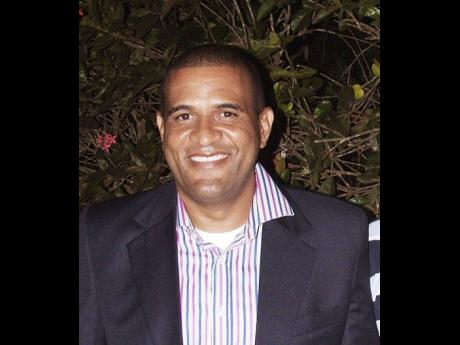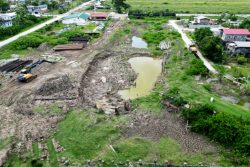(Jamaica Gleaner) The Jamaican Bar Association (JAMBAR) has reacted to public outcry over last week’s barring of media from the initial court appearance in the murder case of former Member of Parliament Jolyan Silvera.
In separate statements, the Press Association of Jamaica (PAJ) and the Media Association Jamaica Ltd (MAJ) called for the judge in the case to either explain the rationale behind the “use of discretion” to bar the media from witnessing the proceedings or to reverse the decision.
In a statement tonight, through attorney-at-law Tamika Harris, who chairs JAMBAR’s Criminal Law Committee, the committee said it agreed that reasons for barring the media should have been provided, but that it could not agree with any attempt to publicly pressure the judiciary to immediately reverse any decision.
SEE FULL STATEMENT FROM JAMBAR’S CRIMINAL LAW COMMITTEE:
The Jamaican Bar Association has heard the call by the Press Association of Jamaica (PAJ) and Media Association of Jamaica (MAJ) for a “roll back of the judge’s decision in barring the media from the Silvera case”. This is further supported by the Minister of Legal and Constitutional Affairs joining the call for a reason to be given for the decision to bar the media from covering the initial court appearance in the Jolyan Silvera murder case.
The Jamaican Bar Association (JAMBAR) remains committed to the principles of open justice and natural justice. We acknowledge the public interest surrounding the case and believe that it is crucial for the court to adhere to the principles of open justice, ensuring transparency and accountability.
We also recognise the importance of providing reasons for decisions, especially when that impacts the media, the public, and the affected families.
It appears that the PAJ is asking for the judge to reverse her decision. However, the judge’s decision is compliant with the Gun Court Act. The case concerns allegations involving a crime committed using a firearm and consequently is subject to the provisions of that Act.
Under section 13(1) of the Act only certain limited persons are permitted to be present at any sitting of the Court “…in the interest of public safety or public order…”. These include the police, court personnel, the parties and their attorneys and witnesses and other persons directly concerned with case or “…such other persons as the Court may specially authorise to be present”.
Section 13(2) of the Act permits the court “…in the interest of public safety, public order or public morality…” to limit the information which can be published about a matter including prohibiting any publication that could identify a witness or to publish any information other than the name of the accused, the offence, the verdict and the sentence.
The judge was therefore within her statutory discretion to prevent the media and the family members of the accused from attending the sitting. We regard the independence of our judiciary as of paramount importance. Our judges should operate in a system free of outside influences and pressure.
If the PAJ believes its interests are adversely affected, we encourage them to follow established procedures. The judge cannot “reverse” a decision. If the court makes a ruling, there is the option of appeal, or an application can be made to the Constitutional Court.
While JAMBAR agrees that justice should be open and that reasons should have been provided, we cannot agree with any public pressuring of the judiciary to immediately reverse any decision.
We advocate for adherence to correct procedures, respecting the sanctity of the judicial process. The court remains open to inquiries regarding the reasons behind its decisions, ensuring a fair and just legal system.
Parliament has over the years used their legislative powers to restrict the discretion of our judges which gives us cause for more concern and we invite the media to highlight and focus on these restrictions which could undermine this independence and the administration of justice.
Nevertheless, this case calls for a wider debate as to whether the provisions of the Gun Court Act, passed almost five decades ago, should be urgently reviewed in light of the modern principles of open justice and in particular whether there should be established guidelines for judges to provide reasons where they restrict the access of the public and the media from cases which are of significant public interest.










